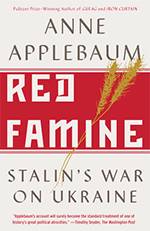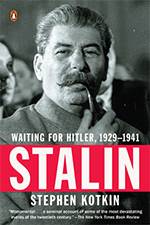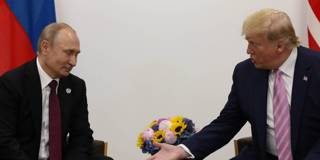Nina L. Khrushcheva
Says More…
This week, Project Syndicate catches up with Nina Khrushcheva, Professor of International Affairs at The New School and author of In Putin's Footsteps: Searching for the Soul of an Empire Across Russia's Eleven Time Zones.
Project Syndicate: What are the best- and worst-case scenarios for Ukraine under President Volodymyr Zelensky, a political neophyte who lacks a coherent policy platform?
Nina Khrushcheva: Zelensky has an opportunity to move Ukraine forward, by tackling corruption and boosting the country’s political independence, bringing it closer to Europe, and potentially also normalizing relations with Russia. But, of course, this is a tall order – one that will be very difficult to deliver, especially without a good team in place.
Zelensky will soon learn that reality is not the TV comedy for which he became famous. He will need to navigate treacherous and complex geopolitical minefields, as the Kremlin tries to turn his inexperience to its own advantage and the West does everything it can to avoid losing Ukraine to Russia, yet again.
Khrushcheva recommends
We ask all our Say More contributors to tell our readers about a few books that have impressed them recently. Here are Khrushcheva's picks:
-

Red Famine: Stalin’s War on Ukraine
by Anne Applebaum
Applebaum is a master narrator of Soviet tragedies. Her latest book is a moving account of the 1932-1934 catastrophe known as the Holodomor (Death from hunger). Applebaum’s research shows that Stalin deliberately caused the famine, which killed five million Ukrainians, in order to crush Ukrainian nationalism.
-

Stalin: Waiting for Hitler, 1929-1941
by Stephen Kotkin
The award-winning second volume of Kotkin’s planned Stalin trilogy. Kotkin’s account of Stalin’s career stands apart from others, because he portrays Stalin as a product of the Soviet political system, rather than its sole creator.
From the PS Archive
From 2011
Nearly a decade ago, Khrushcheva took a look at Putin’s decision to return to the presidency following his four-year stint as prime minister – and the culture that put him there. Read her full commentary The Eternal Putin.
From 2018
Last year, Khrushcheva argued that while Russia has presented its military operation in Syria as a limited endeavor, it serves a broader goal: to send the message that popular revolts against its allies will not succeed. Read her full commentary What Putin Wants in Syria.
Around the web
For many Americans, propaganda is something that happens in other countries. But Trump’s attacks on mainstream media and cries of “Fake News” have given Khrushcheva the sense that she is “listening to Soviet leaders boasting from the Kremlin.” Read more here.
On a recent podcast by the EastWest Institute, Khrushcheva joins Cameron Munter to discuss her new book, In Putin's Footsteps: Searching for the Soul of an Empire Across Russia's Eleven Time Zones. Listen to the podcast here.
Five years after Russia's annexation of Crimea, Khrushcheva notes, cracks are forming in the “Russia is Great” rhetoric. This may portend serious political and economic crises. Read more here.
